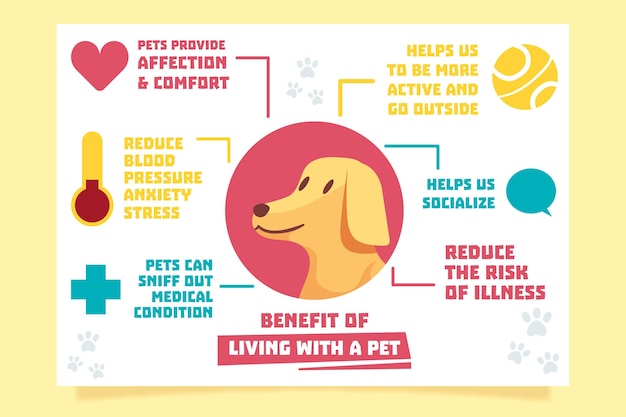Rainy Season Pet Dangers: September Emergencies in Corpus Christi


Rainy Season Pet Dangers: September Emergencies in Corpus Christi
When September storms sweep through Corpus Christi, many pet owners find themselves facing unexpected dangers that the rainy season can bring. Whether it is a sudden slip on wet tile, a mysterious skin rash that seems to appear overnight, or a frightening episode of vomiting after drinking from a puddle, the risks are real. At South Texas Veterinary Urgent Care, we see firsthand how rainy season pet emergencies can disrupt your life and threaten your pet’s well-being. Our clinic, conveniently located at 4133 Gollihar Road, Corpus Christi, TX 78411, is here to provide immediate help when your pet needs it most.
September’s high humidity, heavy rains, and unpredictable weather can create a perfect storm for pet injuries and illnesses. In this blog, you will learn about the most common rainy season pet emergencies in Corpus Christi, how to recognize early warning signs, and what steps you can take to keep your furry companion safe. Remember: walk-ins are always welcome at South Texas Veterinary Urgent Care; you never need an appointment for urgent care, so you can count on us when time matters. If you are searching for an urgent care vet near me or emergency veterinarian near me, our team of veterinarians is ready to help. For more details about the types of urgent situations we manage, you can explore our urgent veterinary care services.
Recognizing Rainy Season Pet Emergencies in Corpus Christi
What to Watch For After a Storm
The combination of wet weather, increased allergens, and changes in routine can put your pet at risk for certain health emergencies. Recognizing early signs of trouble is crucial for prompt intervention. After a storm, you may notice your dog limping or hesitating to walk. Slippery floors, muddy yards, and hidden debris can easily lead to sprains or more serious injuries. Other symptoms to watch for are sudden vomiting or diarrhea, which can occur after your pet drinks from contaminated puddles or eats something harmful washed up by the rain.
Skin problems are also more common in the rainy months. You might see red, itchy patches on your pet’s belly or paws, or notice them scratching more than usual. Ear issues can flare up when moisture gets trapped, leading to head shaking, ear scratching, or a nasty odor. In severe cases, wounds or lacerations from hidden hazards in wet grass can quickly become infected. Warning signs include swelling, discharge, or your pet avoiding being touched.
If your pet develops any of these symptoms, especially after a rainy spell, it is important to monitor them closely. Some issues, like allergic reactions or breathing difficulties, can escalate rapidly and require immediate emergency veterinary care. For more information on how our clinic can assist with these situations, visit our emergency veterinary care page.
Why Rainy Weather Increases Pet Emergency Risks
Understanding Local Rainy Season Hazards
Corpus Christi’s weather in September is marked by frequent rain, high humidity, and the occasional tropical storm. These conditions create several hazards for pets. Wet ground and slippery indoor surfaces can lead to falls and lameness, particularly in active dogs or older pets with mobility issues. If your pet is limping or refusing to bear weight, that could be a sign of a sprain or more serious injury. You can find details about how our clinic evaluates and treats these issues on our lameness evaluation services page.
Standing water from heavy rain is another serious concern. Puddles and temporary pools can harbor bacteria, parasites, and chemicals from runoff. When pets drink from or play in these, they are at risk for gastrointestinal problems, including vomiting and diarrhea. In some instances, more severe infections like leptospirosis can develop, which may require hospitalization.
Allergens and irritants also become more prevalent during the rainy season. Mold and pollen levels rise, leading to increased cases of skin rashes, hot spots, and ear infections. For pets with allergies, the damp environment can trigger intense itching, red skin, and swelling. South Texas’s lush vegetation after a rain can conceal sharp objects, thorns, and even snakes, increasing the risk of bites and lacerations.
Rainy Season Dangers Unique to South Texas
Beyond the usual slips and skin problems, Corpus Christi and its surrounding communities often see a surge in snake bites during and after heavy rains. Flooding can drive snakes out of their hiding places and into yards or even garages. Symptoms of a snake bite can include sudden swelling, pain, weakness, or collapse. Immediate veterinary attention is critical in these cases.
Additionally, the combination of warm temperatures and stagnant water creates a breeding ground for mosquitoes, increasing the risk of heartworm transmission. While this is more of a long-term concern, emergency presentations can occur if a pet with undiagnosed heartworm disease suddenly develops respiratory distress.
How South Texas Veterinary Urgent Care Treats Rainy Season Emergencies
Immediate Response When Minutes Matter
When your pet arrives at our clinic with a rainy season emergency, our veterinary professionals act quickly to assess and stabilize their condition. For slip and fall injuries resulting in lameness, our team will perform a thorough physical examination, often supported by digital radiology and, if needed, ultrasounds to identify fractures, sprains, or ligament injuries. Treatment options involve pain management, stabilization of the affected limb, and, in some cases, surgical intervention.
For skin and ear emergencies, such as sudden rashes or infections, we use advanced diagnostics to pinpoint the cause. Our dermatology services allow us to address everything from allergic flare-ups to bacterial and fungal infections. Treatment might include medicated baths, topical therapies, or targeted medications to reduce itching and inflammation.
Pets presenting with vomiting and diarrhea receive prompt evaluation to determine the underlying cause, whether it is a toxin, parasite, or infection. Our in-house diagnostic laboratory lets us run tests quickly and start supportive care, such as fluid therapy and anti-nausea medications. To learn more about how we manage these urgent gastrointestinal issues, visit our vomiting and diarrhea urgent care page.
For wounds and lacerations, our team cleans and repairs injuries using sterile techniques to minimize the risk of infection. In cases of snake bites or severe allergic reactions, immediate stabilization is crucial. We provide antivenom for snake bites when indicated and closely monitor for shock or respiratory distress.
What to Expect During Your Visit
At South Texas Veterinary Urgent Care, we know emergencies do not wait for appointments. That is why we welcome walk-ins and provide care during extended hours, including when your regular veterinarian may be closed. Our team of veterinarians will explain each step, answer your questions, and ensure your pet receives the right care as quickly as possible.
Steps Pet Owners Can Take to Prevent Rainy Season Emergencies
Simple Actions to Protect Your Pet
While not all emergencies can be prevented, there are steps you can take during the rainy season in Corpus Christi to reduce your pet’s risk. After storms, inspect your yard for debris, sharp objects, or displaced wildlife before letting your pet outside. Dry your pet’s paws and coat thoroughly after walks to prevent skin irritation and fungal infections. If your pet’s fur stays damp, consider a quick towel dry or use a pet-safe blow dryer on a low setting.
Keep your pet away from standing water outdoors, as puddles can contain harmful bacteria, parasites, or chemicals. Providing fresh, clean water inside can discourage pets from drinking from unsafe sources. If your pet is prone to allergies or ear infections, regular cleaning using veterinarian-approved products can help reduce flare-ups. Monitor your pet’s activity indoors as well; wet floors can be slippery, so placing rugs or mats can help prevent falls, especially for older dogs.
Stay vigilant for signs of snake activity after heavy rains. If you notice snakes or other wildlife nearby, supervise your pet’s outdoor time more closely. Consider using a leash or keeping your dog in a fenced area, especially at dusk and dawn when snakes are more active. For ongoing concerns about skin health or wounds, you can find more information on our dermatology management page.
When to Seek Emergency Veterinary Care in Corpus Christi
Knowing When to Act Fast
Some rainy season pet emergencies require immediate attention from a veterinary professional. If your pet is limping and cannot bear weight, develops sudden swelling or pain, or has a wound that is bleeding or showing signs of infection, it is time to seek help. Severe vomiting or diarrhea, especially if accompanied by lethargy or refusal to eat, can quickly become life-threatening due to dehydration. Allergic reactions, such as facial swelling, hives, or difficulty breathing, are always urgent.
Snake bites, collapse, or any sudden change in behavior after a storm should prompt an emergency visit. Time is critical in these cases; pets can deteriorate rapidly without intervention. Remember, you do not need an appointment at South Texas Veterinary Urgent Care. Our clinic is open to walk-ins and provides immediate care when your regular veterinarian is unavailable. If you are searching for 24-hour vet near me or Corpus Christi urgent care for pets, our team is prepared to help.
It is always better to err on the side of caution. If you are ever unsure whether your pet’s symptoms are serious, contact our clinic or bring your pet in for an evaluation. For specific concerns about lameness, you can find more details on our lameness evaluation services.
Keeping Your Pet Safe During Corpus Christi’s Rainy Season
September’s storms bring beauty and renewal to South Texas, but they also present unique challenges for pet owners. By staying alert to the signs of rainy season pet emergencies and taking a few simple preventive steps, you can help keep your pet safe and healthy. South Texas Veterinary Urgent Care is committed to providing fast, compassionate care for animals in Corpus Christi and surrounding communities. If your pet faces an emergency, remember that walk-ins are always welcome and no appointment is needed. Our skilled veterinary professionals are here to support you during every rainy season emergency.
For immediate assistance, visit our conveniently located clinic at 4133 Gollihar Road, Corpus Christi, TX 78411 or call us at (361) 833-6022. Whether you need an emergency vet near me or urgent care vet near me, South Texas Veterinary Urgent Care is always ready to help with rainy season pet emergencies in Corpus Christi. Learn more about how we can assist with urgent injuries or skin problems by exploring our urgent veterinary care and dermatology services pages. Your pet’s health and safety are our top priorities—let us be your trusted partner when every minute counts.
Disclaimer: This blog is for informational purposes only and is not a substitute for professional veterinary care. If you believe your pet is experiencing an emergency, seek immediate attention from a qualified veterinarian. For additional information on pet emergencies and urgent care, consult reputable sources such as the American Veterinary Medical Association.


















